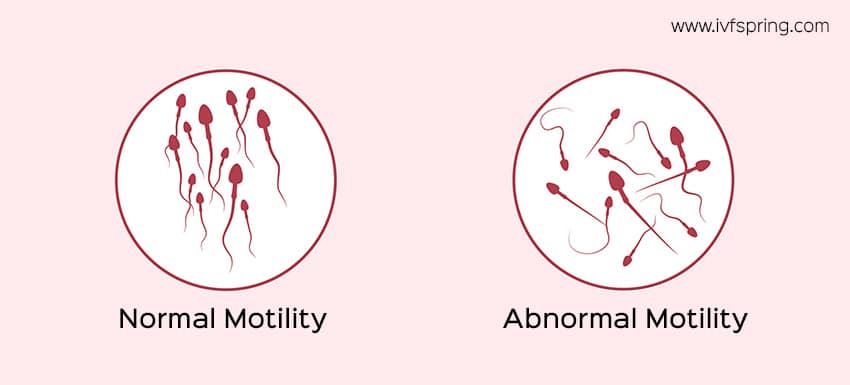Sperm motility is an important factor impacting male fertility. In simple words, it could be defined as the ability of every sperm to swim across the female reproductive tract and eventually reaching to fertilize the egg. It is measured based on the percentage of moving sperm cells in a semen sample. Being diagnosed with sperm motility in a clinical analysis isn’t a reason to worry. An appropriate treatment followed by lifestyle changes and developing healthy habits can foster a positive change. So, what are the reasons for low sperm motility and what are the ways of treating it? All such questions associated with sperm motility would be answered here!
Reduced sperm motility is an outcome of many natural factors or habits that have been developed over the years. A simple semen analysis establishes sperm motility. In case, if only 40% or sperms lesser than that are found to be motile, the motility is deemed to be low. Low sperm motility could be hereditary; in some cases, it could also result out of a disorder in the male accessory sex gland secretion, causing the glands to empty at a slower pace. However, besides these, there are several reasons that have observed to have a direct association with low sperm motility. One prominent reason is smoking and consuming alcohol. Smoking has a direct and close relationship with the quality, shape, and motility of the sperms. Besides, alcohol consumption as well affects sperm motility. Moreover, wearing tight clothes, consuming processed meat, avoiding exercises, insufficient rest, etc. could also lead the sperm motility to reduce.
Now that we’ve established the reasons affecting sperm motility, we would now look at the remedies that help build sperm motility. Yes, sperm motility is something that can be cured, provided the efforts are sincere and propelled in the right direction. The foremost change required is to follow a balanced diet, including spinach, bananas, eggs, dark chocolate, garlic, walnuts, carrots, etc. and to exercise regularly. Consulting experts like Dr. Anjali Deval from IVF Spring is the right step in this regard. You would be guided through all the remedies helping you build sperm motility.
So, apart from the above, you need to control your temptations and stop smoking and consuming alcohol. Based on the doctor’s prescription, you may be required to take a multivitamin. Sperm development requires a temperature 2-3 degrees lower than your body temperature. Hence, it is necessary that you avoid wearing tight clothes and keep it cool by wearing loose clothing.
The above may not bring quick results. Your body would require time to adapt to the lifestyle changes and to redevelop the lost sperm motility. Generally, it takes around 3 months for the sperm motility to redevelop, but the duration may be case specific. If at all the above doesn’t work, you may consider going for an IVF or IUI treatment, based on expert advice. For detailed information, and for a detailed understanding of every aspect, consult Dr. Anjali Deval from IVF Spring.


